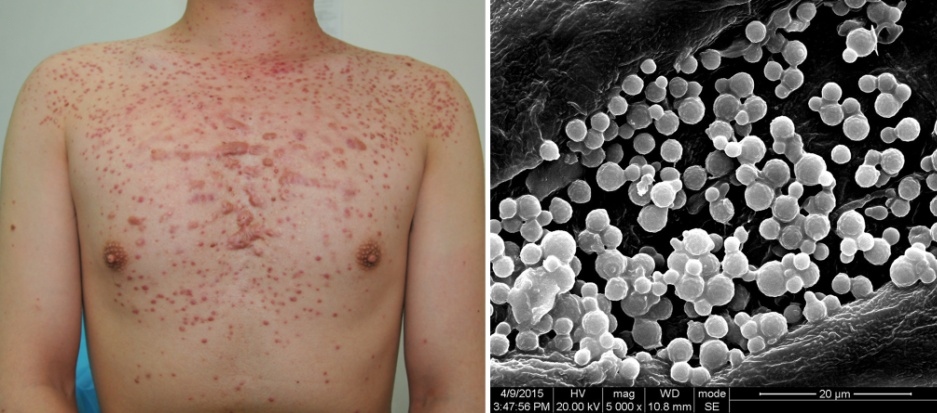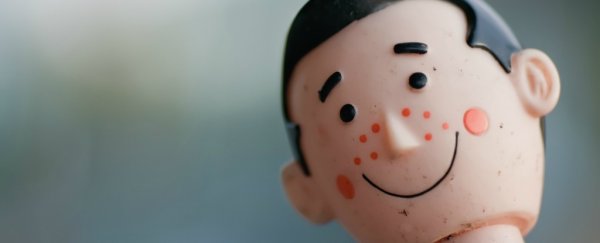You've got acne that just won't seem to go away. It's red, sometimes itchy, and maybe a bit different to other acne you see from time to time.
Well, you might have something called fungal acne.
Fungal acne or Malassezia (Pityrosporum) folliculitis is a type of acne, which is commonly misdiagnosed as just regular old bacterial-caused acne.
But the way to treat it is completely different, so unless you're aware of what it is, you could even be making the infection worse, not better.
Fungal acne is caused by a type of yeast called Malassezia. Although it's naturally found on the skin of many animals, including humans, being an opportunistic pathogen means it will sometimes form small bumps and pimples across the chest, arms, back or face.
"Our skin is like a giant petri dish," Adam Friedman, a dermatologist at the George Washington University School of Medicine, told Gizmodo.
"It sounds disgusting, but there are over 500 bacterial species, not counting virus or fungi. They're like an extra layer of protection, they fight off potential pathogens. They keep everything in check. But if you disrupt that balance, other things can take over."
Once the fungi has found a place to nestle into, it'll plug the follicle, feast on the oil on your skin and continue to replicate.
 A 25-year-old man with pityrosporum folliculitis and electron micrograph of his skin, showing Malassezia spores. (Ran Yuping et al.)
A 25-year-old man with pityrosporum folliculitis and electron micrograph of his skin, showing Malassezia spores. (Ran Yuping et al.)
Although it was first described in 1969, and made a specific disease in 1973, it's still relatively unknown.
"Often misdiagnosed… it is easy to miss and thus is likely underdiagnosed," explain Richard M. Rubenstein and Sarah A. Malerich in a 2014 paper.
"It is commonly found in people living in hot, humid climates, particularly those affected by excessive sweating, and is reported to be more common in males."
The use of immunosuppression and antibiotics, which can disturb the balance between your natural skin bacteria and yeast, can also trigger breakouts.
So what should you do if you think you have fungal acne?
Go see a doctor. Hopefully they'll be able to look into it further and confirm your suspicions. In most cases they might offer you an antifungal cream, or oral antifungal.
And tell your friends. The more people that know about it, the less likely it is to be misdiagnosed.
"It is important to consider this diagnosis in patients failing to respond to typical acne medications," Rubenstein and Malerich added.
"Malassezia folliculitis may persist for many years if it is misdiagnosed."
If you want more information, we'd recommend this comprehensive blog post by Simple Skincare Science.
